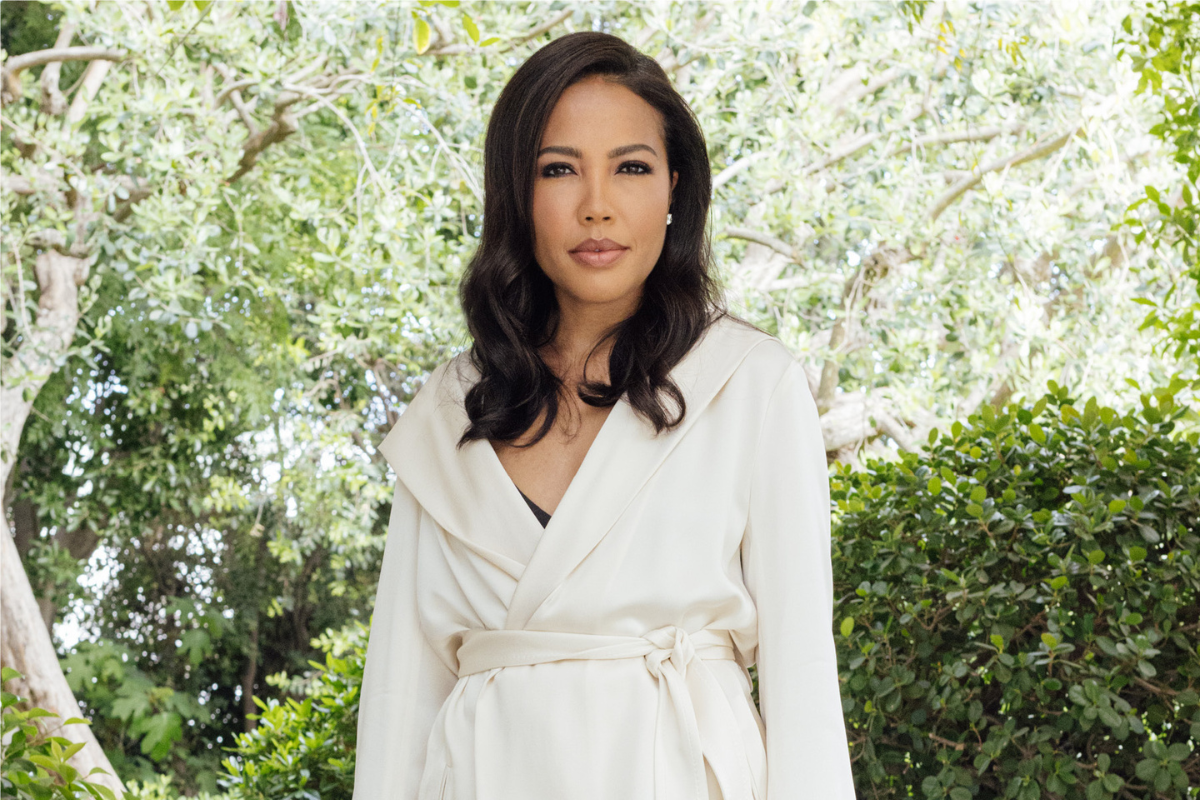Luxury high-rises and spiraling rents have turned ever-increasing chunks of East London’s sprawl into a gentrified playground for creative types and young professionals. But according to global businesswoman and entrepreneur Emma Grede, when she was growing up there, it was a very different world.
These days she has swapped her London home for a sun-soaked Los Angeles area code, where she has created an unparalleled empire of brands, each with a purposeful twist.
She has built hugely successful businesses alongside three of the Kardashians – sisters Khloé and Kim and their mother Kris Jenner. Not bad for an East Ender.
“There’s a real kind of hustler mentality where I came from. I was always a kid on a mission and I really had it in my bones.”
Los Angeles is an incredible place to bring up her four children, she says, and the business opportunities are uncapped. But her London roots still run deep – and they always will.
“There’s something to be said of that background,” Grede tells The CEO Magazine. “There’s a real kind of hustler mentality where I came from. I was always a kid on a mission and I really had it in my bones.”
Some may equate that with ruthlessness, but that’s not the case with Grede. She takes great care to give back by devoting a substantial chunk of her time to mentoring the next generation of business leaders.
In this way, she can influence those following in her footsteps to promote inclusivity, representation and diversity in all areas of business and beyond. By encouraging the younger generation to use their platforms and voices, she is creating a legacy that will endure.
Resourceful resilience
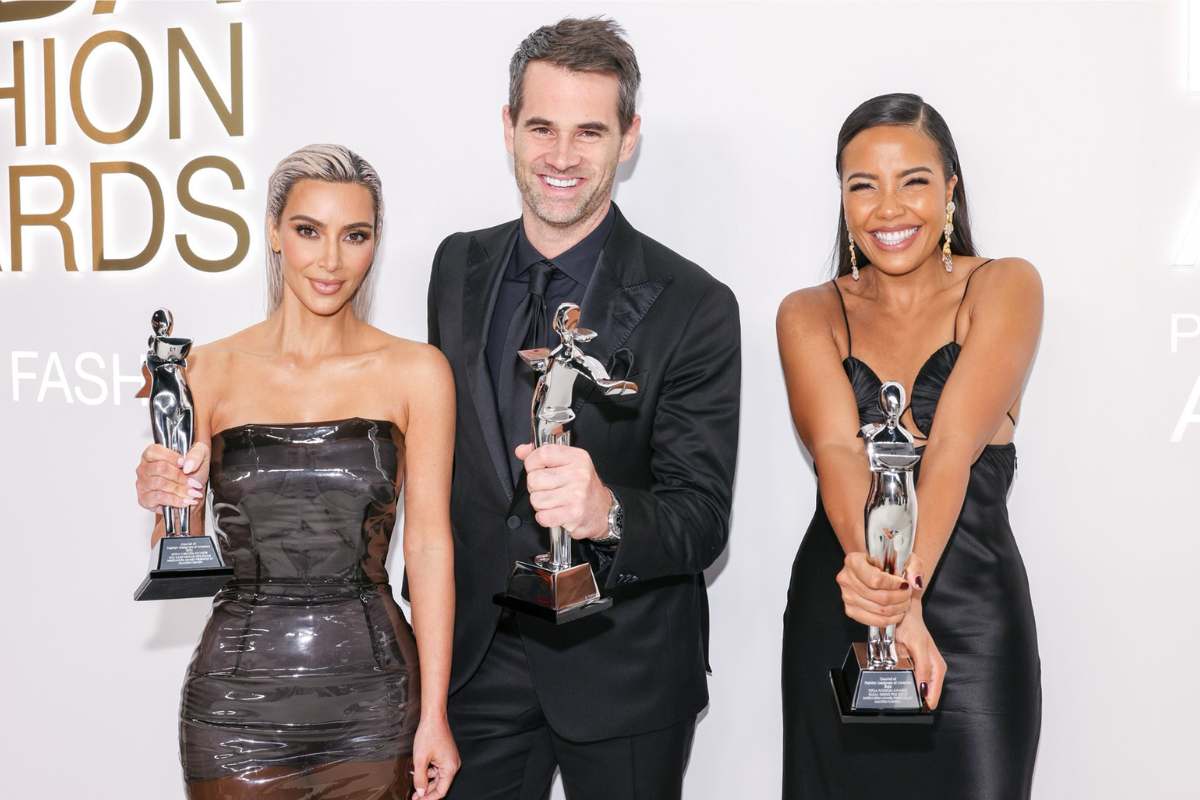
But while mentorship is something Grede now prioritizes in her day-to-day, it wasn’t something she had access to when she was working her way up through the ranks. In fact, growing up she simply didn’t know anyone who had their own business.
Instead, she would scour publications like The Rich List to try to grasp how people got their feet on the ladder and she found herself inspired by those who had found success while making an impact on people’s lives, such as Oprah Winfrey.
“It’s OK to have dreams and go after them without sacrifice.”
Then, as she grew her first business, fashion and entertainment marketing agency ITB Worldwide, she would glean useful morsels of knowledge from her clients, pumping them for their expertise.
“Certainly as I have gotten older, I definitely have tried to surround myself with those people,” she adds.
Passing on the knowledge that she herself has accumulated over her decades in the industry seems to come naturally to Grede. People reach out to her constantly, she reveals, thanks to her accessibility via social media and her appearances on TV shows such as Shark Tank, in which she became the first Black female Shark.
“So often it strikes a chord. I get so many women who are desperate to start their own business and just want to know, ‘How do I get a start? Where do I break finance? How do I write a business plan? What would you do in this situation?’” she explains.
It’s particularly daunting for women to travel this path – something of which Grede is only too aware as a mother herself. But while it’s an undeniable juggling act, she remains pragmatic. Not only do her kids benefit from her devotion, but they get to learn an important life lesson.
“It’s OK to have dreams and go after them without sacrifice,” she says. “They will get to know that a working woman is a happy woman.”
And while she suffers, as so many do, from mother’s guilt, particularly with such a hectic traveling schedule (she’s been to Tokyo and London in the last week alone) she makes sure she communicates with her kids about her ‘why’.
“As women, we are incredibly hard on ourselves. The trade-off is really real. I think if I could say one thing to working women, it’s to get comfortable with that.”
Finding her way
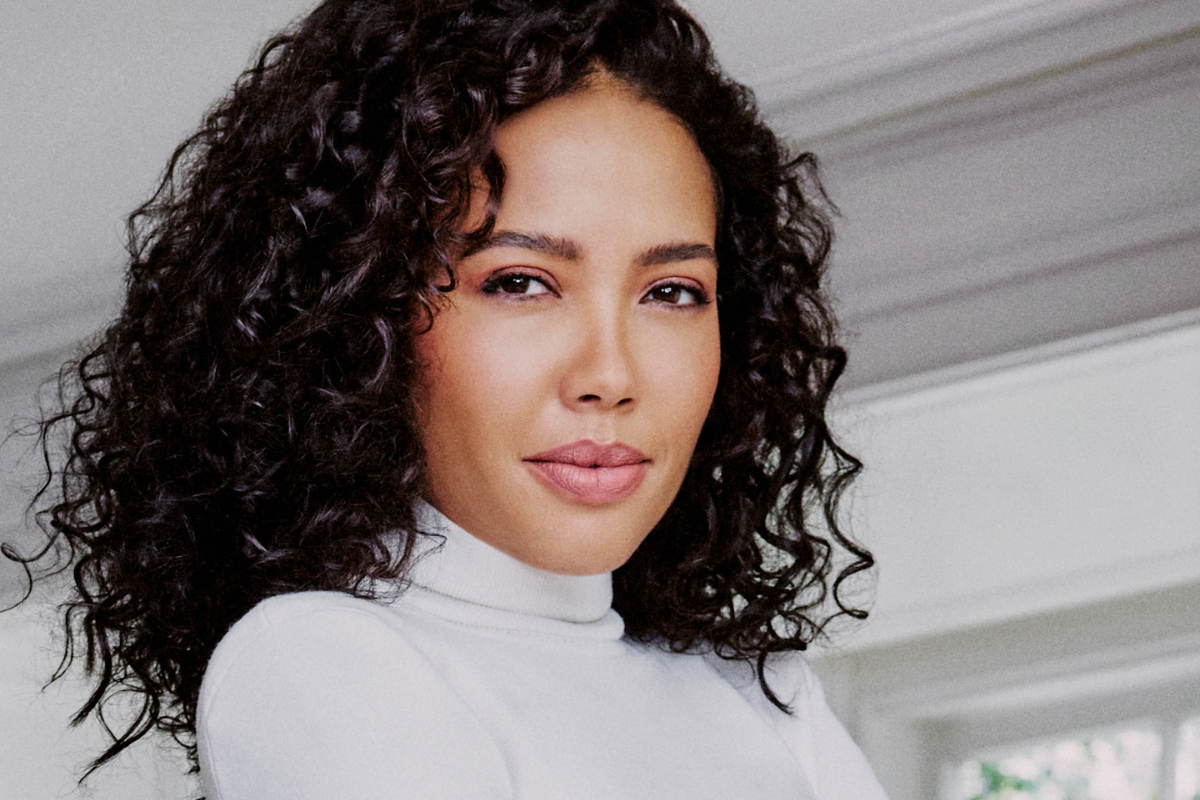
These are lessons Grede has learned over almost three decades of building her career. From a young age, she has worked hard – first taking up a paper route, then working in a delicatessen and in other areas of retail.
But her yearning was always for the world of fashion. Heavily influenced by a time when British designers like Alexander McQueen were at the forefront, and British models such as Kate Moss and Naomi Campbell stalked catwalks worldwide, she longed to be part of that scene.
“I never thought of myself as a creative, but rather somebody that is good at empowering other creative people around me,” she explains. “That’s really where my career has brought me.”
“I never thought of myself as a creative, but rather somebody that is good at empowering other creative people around me.”
With fashion a notoriously difficult industry to break into, Grede threw herself into it wholeheartedly, taking rejection after rejection on the chin until she landed her first work placement, albeit working for free.
“It was a very different time and you really did have to bang the door down,” she recalls. “But I did that and I ended up working behind the scenes at London Fashion Week and essentially learning what the business of fashion was.”
This understanding of the different aspects of the industry helped her to ascertain where exactly her own strengths lay – largely in negotiations. “I was great at working with very difficult creative people,” she acknowledges.
An inspired offering
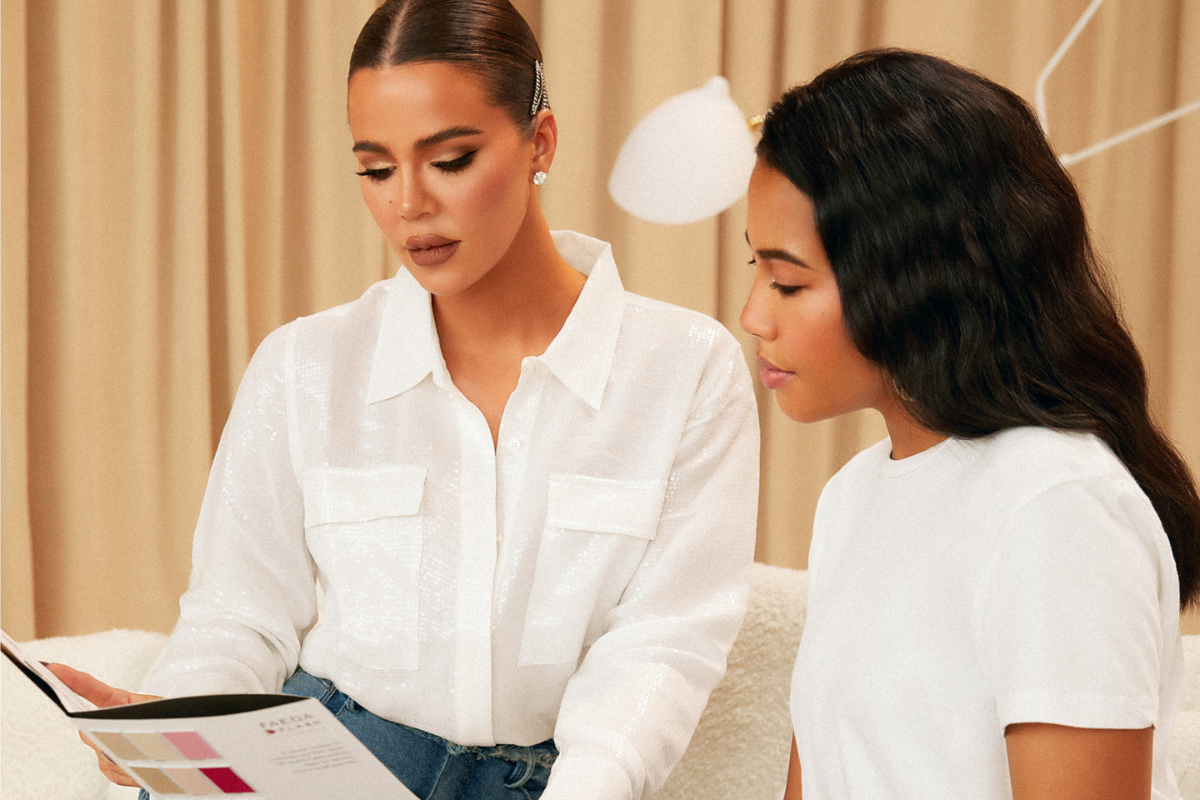
Recognizing an obvious gap in the fashion industry, Grede went on to found the first fully inclusive fashion brand Good American with Khloé Kardashian in 2016.
“Representation was always being highlighted in brand campaigns, but if you peeled back the layers, companies actually looked nothing like the images that they were perpetuating,” she explains.
“Plus-size women and women of color are left out of the conversation and are massively underrepresented in fashion. I really wanted to change that by creating clothes that were for all sizes.”
A big part of that was creating a company culture that welcomed people in and allowed them to contribute and thrive, according to Grede.
“Plus-size women and women of color are left out of the conversation and are massively underrepresented in fashion.”
The formula worked, and the company is now an immense source of pride for Grede, pioneering body diversity online and catering to plus-size customers in a meaningful way. Hers has become one the first brands to put plus-size mannequins in its stores.
“Good American single-handedly got the industry to sit up, take notice of which customers had been overlooked and we literally changed the status quo,” she reflects.
But she is quick to stress that it was no easy feat, and certainly not without confrontation.
Pushbacks came thick and fast at the beginning, and while people were quick to congratulate Grede on her idea, they were less willing to back the foundational concept. They wanted in, without actually having to stock any of the larger sizes.
Frustrated and angry, she stuck to her guns, putting in place a set of principles, which meant retailers only interested in the mid-sizes were blocked from doing business with the brand.
“It was great for the business, because it meant that we had a set of operating principles that essentially dictate our business today,” she says.
Ultimately, the brand owes its success to its customers, she says. They voted with their wallets, at first just buying into its range of denim, and then calling for its expansion into other areas of clothing including ready-to-wear, swim, shoes and activewear.
“And that was really very affirming in the beginning, because we knew that there was a need for the product.”
Building on the blueprint
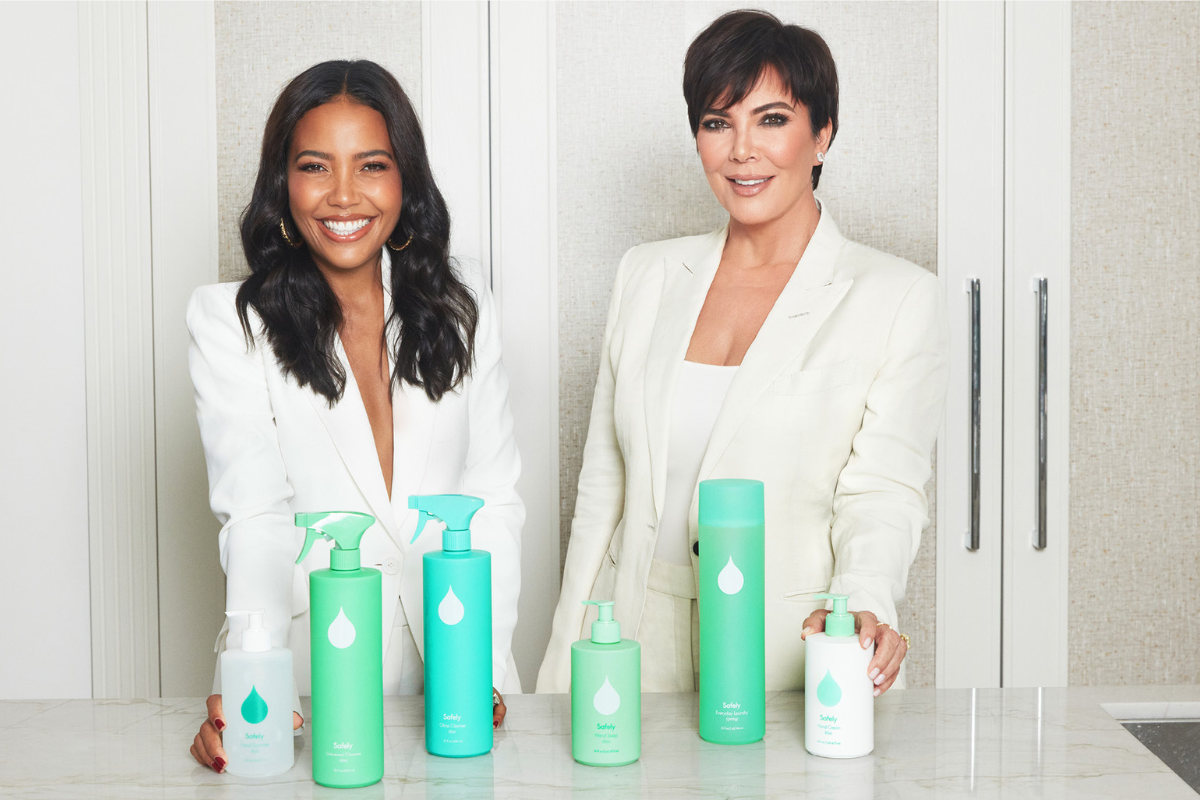
An inspiring success story in its own right, Good American’s fearless rise laid the groundwork for Grede’s next commercial venture, a collaboration with Khloé’s sister, Kim, which would become known as SKIMS, founded in 2019.
“Kim was very clear about her vision from the beginning,” Grede says. “I had already had, at that point, four years of running Good American and I knew that she was right, this idea around shapewear in skin colors and underwear in nine different shades.
“I’m a Black female CEO, I was like, ‘Yeah, 100 percent. I’m on board. This is exactly what the world needs.’”
This instinctive reaction is representative of the way she works across the board.
“I knew that we could make a superior product in all sizes because I’d been doing it before.”
“I’m very gutsy. I’m not somebody that goes off, canvases a hundred people, looks at the data, reads everything about it,” she says. “I’m either there in my mind straight away and I go off and do a bit more discovery, or I’m just not.
“And I think that this was something that just chimed with me instantaneously, and I knew that we could make a superior product in all sizes because I’d been doing it before.”
Having helped turn SKIMS into a more than US$3 billion business, Grede turned her attention to a new venture – her first outside the world of fashion.
Inspired by the COVID-19 pandemic and the concerns it stirred up around cleanliness, she devised Safely, a plant-based range of cleaning products that also spoke to a growing desire to care for the planet. This time she chose a new business partner – manager extraordinaire and fellow entrepreneur Kris Jenner.
Making it efficacious and accessible were two key objectives for Grede in embarking on this new project, opting against pretty glass bottles for more affordable, yet still environmentally friendly, alternatives and once again, adopting the highest standards in terms of quality.
“It’s obviously no secret that my business partners are some of the most famous women on the planet, and that is a huge accelerator when you start a business,” she admits. “There is no amount of media spend that can equate to the power of Kris or Kim or Khloé posting and tweeting about something and taking customers on a journey.
“But that only drives you to buy a product once. You’ve got to have exceptional products to keep customers coming back.”
The need for purpose
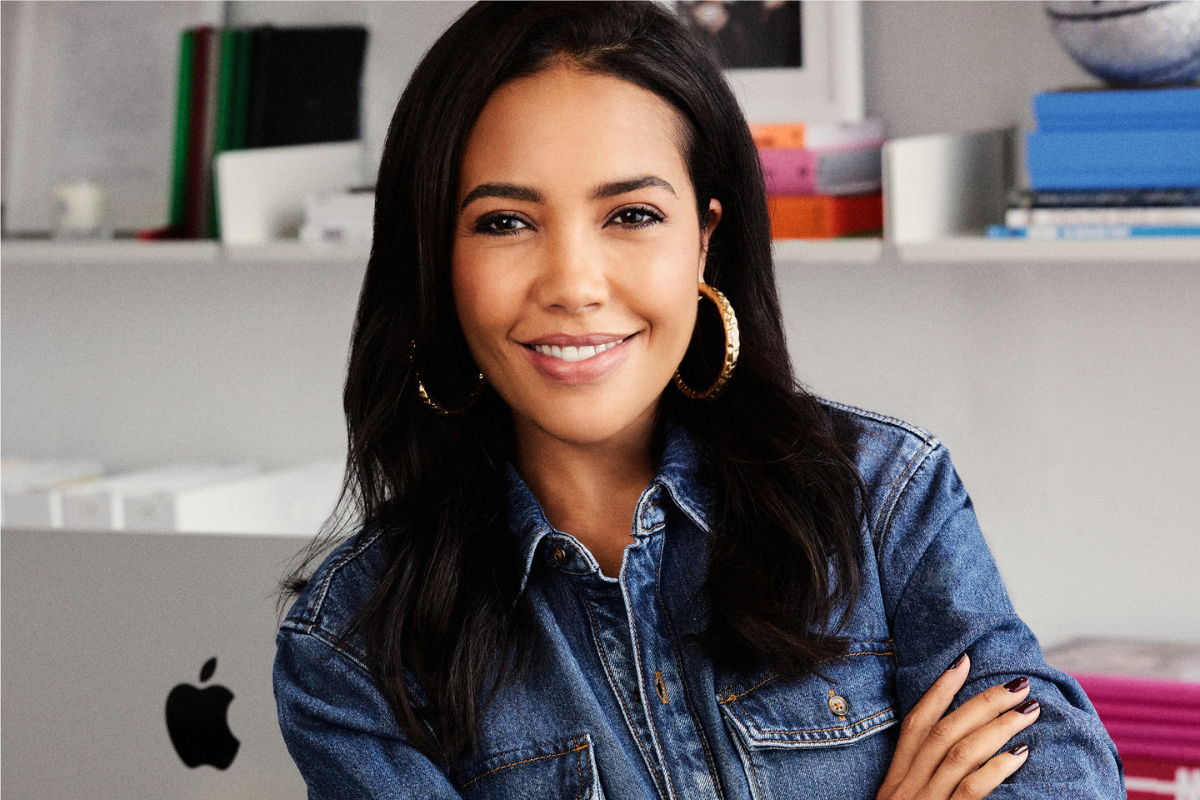
As if three multi-million-dollar brands on her plate wasn’t enough, Grede also finds time for her passion projects. She sits on the board of Baby2Baby, an organization that provides diapers, clothing and other necessities to children living in poverty. She is also the Chair of the 15 Percent Pledge, a racial equity and economic justice not-for-profit organization that was founded in 2020.
Grede’s own involvement with the Pledge was sparked by the racial reckoning that swept the United States, and indeed the world, in the aftermath of the brutal police murder of George Floyd, which deeply resonated with her.
She came across the 15 Percent Pledge on social media and decided to contact Founder Aurora James to get involved.
The organization calls on major retailers and brands to create sustainable and supportive ecosystems for Black-owned business to thrive, by asking them to dedicate 15 percent of their shelf space to Black-owned companies.
“I think it’s really important to be able to leverage the good fortune I’ve had and invest in other women and in other brands to really help them get started.”
As Chair, Grede taps into her extensive knowledge of the world of business, and her knack for difficult conversations, to drive the organization forward.
“We want companies to completely reevaluate the way that they work to create greater equity,” she explains.
So far, more than 28 brands have taken the pledge, including Sephora, Nordstrom, Ulta Beauty and Macy’s.
More than just a pledge of allegiance, it represents a contractual commitment to back these businesses and stay the course, with contracts running anywhere between three and 10 years.
“We have created a US$14 billion pipeline of opportunity for Black-owned businesses,” she says proudly. “In real terms, in the three short years that the Pledge has been around, that’s 700 brands that are on the shelves of retailers that weren’t there before.”
While she has clearly earned her stripes as a global business mogul, it’s through actions like these that Grede is really making an impact, particularly on the next wave of talented and ambitious people working their way through the ranks.
Her commitment to supporting tomorrow’s leaders while shaping a more positive future truly sets her apart. “I think it’s really important to be able to leverage the good fortune I’ve had and invest in other women and in other brands to really help them get started,” she says.
“And that’s just such a hard part of business. So I think I’m fortunate to be in a place where I can help other people. You’ve just got to do it.”

